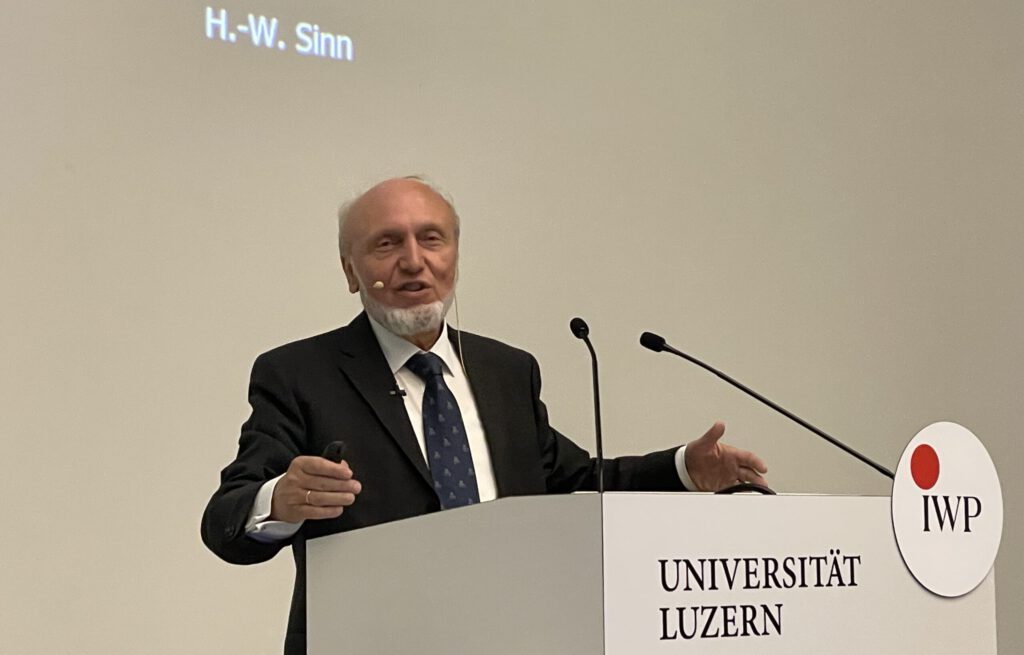
Economist Hans-Werner Sinn shows in Lucerne what ails the global financial system. He even finds in Switzerland the solution to the Euro’s problems.
“Banks demand ten times more equity from their customers than they have themselves before they give them a loan,” said German economics professor Hans-Werner Sinn on Tuesday evening in Lucerne.
Anything else would be far too risky for financial institutions, the star economist from Germany continued during his public lecture at the Institute for Swiss Economic Policy IWP at the University of Lucerne.
Only hard capital counts
Major bank UBS urgently needs more equity capital, said Sinn, who was actually speaking on the subject of sovereign debt management. But Switzerland itself is already discussing the demand for more equity capital for the systemically important UBS, he indicated.
When asked by the business news portal muula.ch how high he thought UBS’s equity capital should be at best, Sinn evaded the question.
It was clear, however, that the current value of hard equity and the consideration of risk-adjusted core capital ratios would hardly be sufficient in the event of a crisis.
Hundreds of eager listeners
The world was able to see this impressively in the recent US banking crisis. Silicon Valley Bank had invested savers’ money in supposedly safe bonds. Nevertheless, the bank went under because the bonds fell sharply in value with the rise in interest rates and the US bank had to sell these securities at low values in the event of a crisis.
Sinn explained to an audience of hundreds in Lucerne that the relatively small bank’s own funds were ultimately not sufficient to absorb those losses.
Inflation helps countries
According to the expert, such a situation has often occurred in the eurozone. The EU helped its member states with their debts so that the financial institutions did not have to devalue the government bonds on their books.
The European Central Bank (ECB) even announced that it would buy unlimited amounts of government bonds, thereby calming the financial markets.
Although there is a ban, countries have already exceeded the euro’s stability criteria 148 times, Sinn continued. However, the consequences of exceeding the 3% limit of the Stability and Growth Pact have so far been practically non-existent.
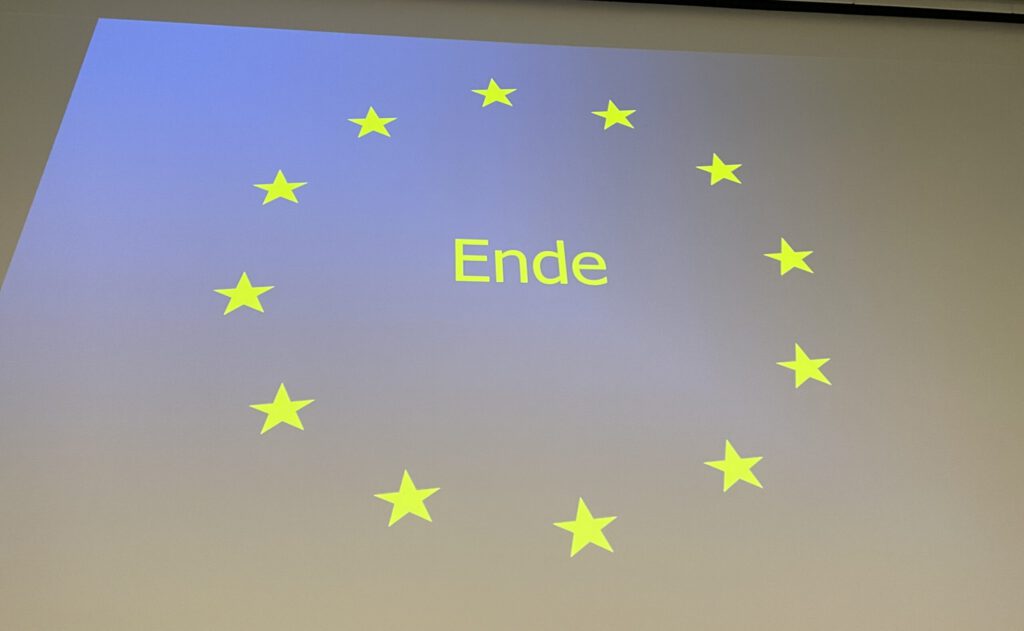
The EU is already working on new debt rules so that investments, for example in infrastructure, are not so heavily weighted when it comes to debt. However, all of this leads to bubbles forming in the long term and ultimately to inflation.
Inflation is very welcome by the states, however, as they use the nominally inflated gross domestic product GDP to push down their debt ratios.
Leftists love debt
Democracies tend to be excessively indebted and the negative effects are often underestimated, warned the professor emeritus of economics at the University of Munich and former president of the IFO Institute for Economic Research.
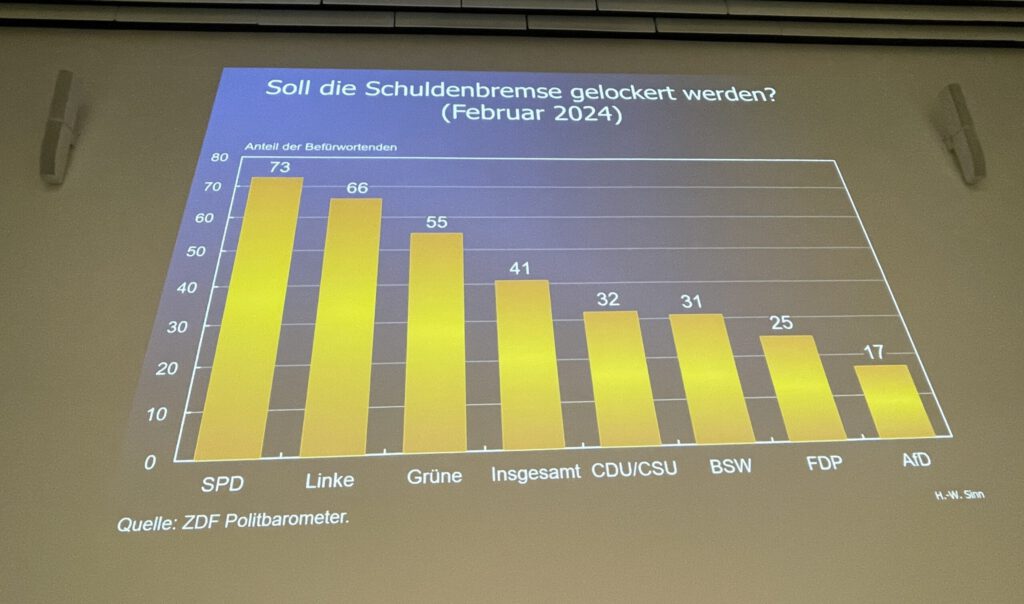
However, left-wing circles like government debt, unlike the right, because the left would fare better with the political distribution process than with distribution by the market.
Empty offices show next bubble
The next financial crisis is already on the horizon, warned the influential economic expert.
Alarm signals are coming from the USA, for example, where around 300 billion dollars in real estate loans for office properties are due within the next two years. However, the vacancy rates for office properties are already at 24 percent in San Francisco and 16 percent in Manhattan.
On the one hand, this is due to the liquidity effect. When interest rates rise, real estate buyers shy away from more expensive real estate loans. On the other hand, office buildings are losing value because working from home has become the norm after the coronavirus pandemic.
Restriction is important
In addition to the expiring loan portfolio for office properties and high vacancy rates, there is another point that could lead to the next financial crisis.
Around 1,900 financial institutions have invested at least three times their equity in financing commercial real estate, warned the star economist.
Ultimately, Sinn showed at the Lucerne IWP what a better way is. Tough budget restrictions, such as a debt brake, are always needed to achieve spending discipline.
It was precisely because of the lack of such limits that the entire Eastern bloc collapsed, he explained.
Interest burden disciplines
And at this point, the 76-year-old, who exceeded his speaking time by almost an hour and still kept the audience on the edge of their seats, referred to the financial excesses of the Leukerbad example in Valais, where the Federal Supreme Court ultimately decided that the canton did not have to pay for the debts of a municipality with a high level of spending.
The subsequent interest burden disciplines the expenditure, according to the mechanics. The right motto is that everyone should be responsible for their own risks.
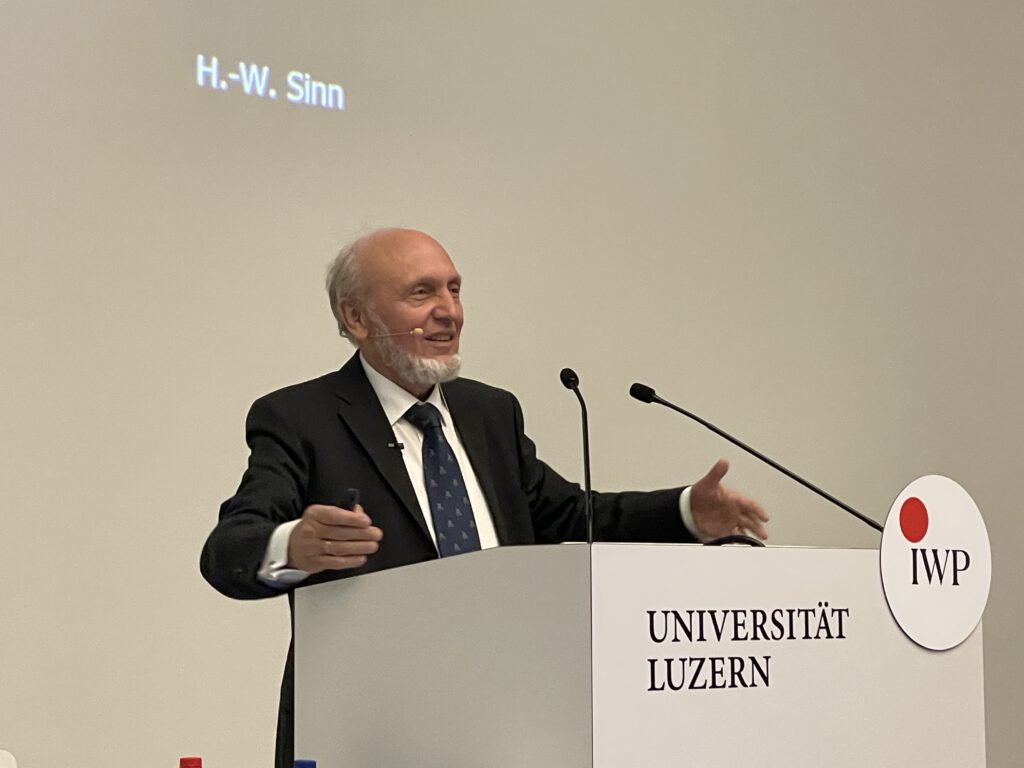
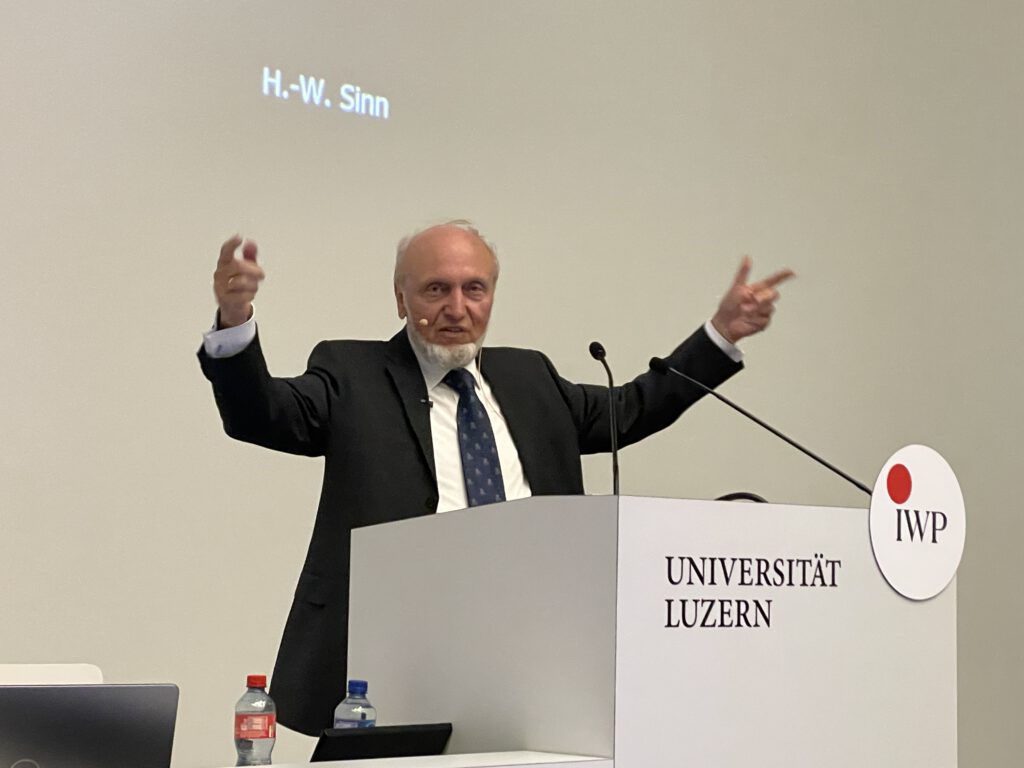
And the EU also needs something like this. The USA has disciplined its member states by no longer allowing the communitization of debt.
Hidden imbalances in the euro
In addition, the ECB, for example, should no longer smooth out the different interest rates when financing member states.
This would also mean that there would no longer be any imbalances and bubbles within the European Central Bank, such as the uncovered credit claims of countries in the so-called TARGET balances – which the EU had kept secret from the public for years.
Sinn emphasized several times that different risks must be reflected in different interest rates.
Ignoring threats
Last but not least, all countries, including Switzerland, need market-based reforms in order to generate more vitality and growth. However, this should not lead to banks such as UBS & Co. being rescued by taxpayers if the worst comes to the worst.
Switzerland should also not allow itself to be intimidated by the big bank UBS with its threat of moving to another country.
Because there, the high risks would eventually be priced in by those responsible for equity capital or the taxpayers there would have to foot the bill anyway.
01.05.2024/kut./ena.




